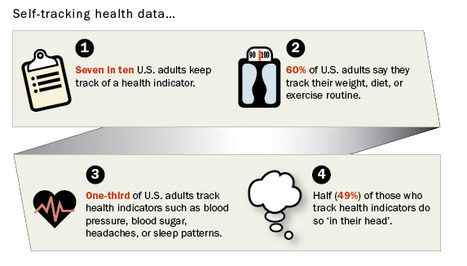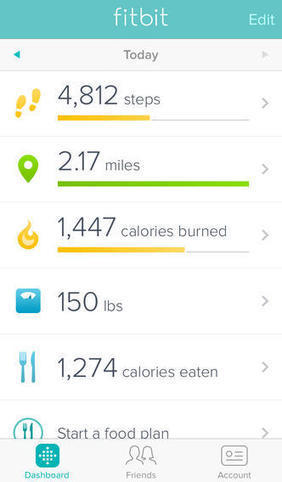Last week I was part of the first community meeting for Data for Health, a program sponsored by the Robert Wood Johnson Foundation. It was held in Philadelphia on October 30 [..].
You can catch up on the #data4health tweets thanks to Symplur — and there were some good ones [..]
Once again I was struck by how wide open the definition of “data” can be. I shared the following data points, based on a Pew Research study I led:
- 7 in 10 U.S. adults track a health indicator for themselves or someone else.
- Half track regularly, half track when something comes up.
- Technology plays a minor role — about 1 in 5 trackers use a medical device, an app, or any other digital tool.
- 1 in 3 trackers uses paper and pencil to take notes.
- Fully half of trackers say they do so in their heads (and that includes me).
- 1 in 3 trackers share their data with family members or clinicians, but many do not. They are asking secret questions and we must not only respect that, but build it into our planning.
- 45% of U.S. adults live with a chronic health condition; of those, 8 in 10 track some aspect of health.
- Tracking data is not a hobby for this group, but rather a way to see themselves more clearly. This might be true of public health in general — data is a mirror we try to use to make good decisions, based on facts.
[..]
My favorite insight of the day came from someone who, when discussing who should be part of the design process for health data systems, said that front desk workers are the ones who know the community best.
Read the full blog here !
ALso be sure to see the Pew study here
Via rob halkes



 Your new post is loading...
Your new post is loading...









Indeed, so many people do track some health parameters themselves: the "ground" for many interest in health apps. But when it comes to relate with these data to their "formal" health care providers, .. we get into a complete other realm. It seems even to be so that patients try to avoid this exchange. .. So many things need to be accommodated at the site of the ...
indeed, the providers, of course.
One of the implications of ehealth.
(see for instance here )